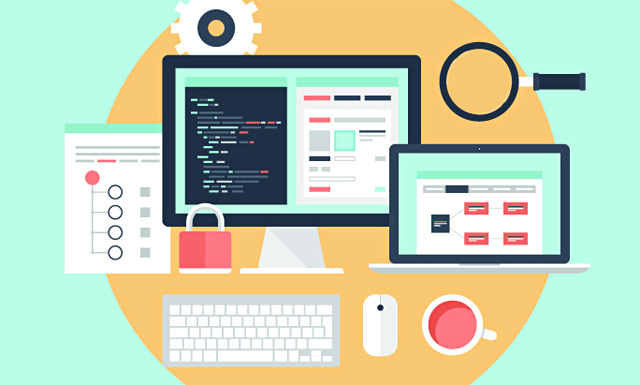 Learning code is tough. While HTMLis easier to learn than most other code languages, it is still, effectively, an entirely different language from English. Syntax, layout and even basic vocabulary can drastically differ from common language. Many novice coders will stress themselves about the difficulty of learning HTML, and what they may be doing wrong. While there is no set way to learn HTML, there certainly are tools to make the process easier. This article outlines three free tools which can make all the difference to any beginner HTML coder.
Learning code is tough. While HTMLis easier to learn than most other code languages, it is still, effectively, an entirely different language from English. Syntax, layout and even basic vocabulary can drastically differ from common language. Many novice coders will stress themselves about the difficulty of learning HTML, and what they may be doing wrong. While there is no set way to learn HTML, there certainly are tools to make the process easier. This article outlines three free tools which can make all the difference to any beginner HTML coder.
Five Ways to Build a Website
An Overview of HTML and CSS for Website Design
Notepad++
Many newbie coders will write their code in simple text editors such as Windows‘ built-in Notepad. While simple text editors will certainly get the job done, they do it rather messily, as they aren’t built to properly display the structure and complexity of HTML syntax. Enter Notepad++, a tool which is, at first glance, somewhat reminiscent of Notepad classic. However, load an HTML file into it, and the differences are readily apparent. Tags, hyperlinks and other core elements of your code are now color-coded, and everything is presented in a neat format designed specifically for coding. If you don’t have a similar program already, Notepad++ is a free and fantastic tool to help organize your HTML.
Pen and Paper
While decidedly more analog than the clean sheets of a text editing program, it really pays off to write your code down by hand. Writing things out helps for memorization, and keeping a journal of sample code is a great way to capitalize on this. Now, it’s not enough to simply read a textbook, as while they are good for reference, nothing truly helps you learn like recording and revisiting a private journal. Be it entire websites or just snippets of code, writing out your HTML will really help you keep track of it.
Codecademy
Even if you take coding classes, using Codecademy.com carries a range of benefits. Not only is it great practice, you may also learn some new tips or shortcuts. Their courses aren’t just for beginners either, as they range from the very basics to more advanced functions and syntax, including various popular APIs such as YouTube and SoundCloud. In addition to HTML and CSS, they offer free courses in PHP, Python, JavaScript, Ruby, and jQuery.
While these tools won’t have you making world-class websites overnight, they will certainly improve your skills. HTML isn’t designed to be easy, so don’t fret over its difficulty. With the proper tools and dedication, anyone can learn to code.